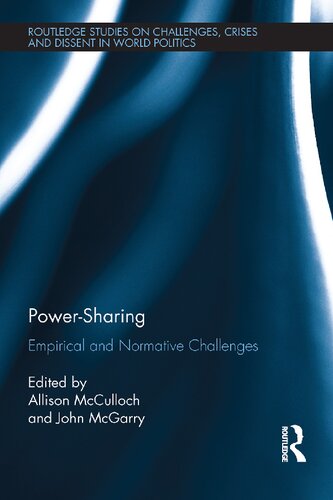

Most ebook files are in PDF format, so you can easily read them using various software such as Foxit Reader or directly on the Google Chrome browser.
Some ebook files are released by publishers in other formats such as .awz, .mobi, .epub, .fb2, etc. You may need to install specific software to read these formats on mobile/PC, such as Calibre.
Please read the tutorial at this link: https://ebookbell.com/faq
We offer FREE conversion to the popular formats you request; however, this may take some time. Therefore, right after payment, please email us, and we will try to provide the service as quickly as possible.
For some exceptional file formats or broken links (if any), please refrain from opening any disputes. Instead, email us first, and we will try to assist within a maximum of 6 hours.
EbookBell Team

0.0
0 reviewsPower-sharing is an important political strategy for managing protracted conflicts and it can also facilitate the democratic accommodation of difference. Despite these benefits, it has been much criticised, with claims that it is unable to produce peace and stability, is ineffective and inefficient, and obstructs other peacebuilding values, including gender equality.
This edited collection aims to enhance our understanding of the utility of power-sharing in deeply divided places by subjecting power-sharing theory and practice to empirical and normative analysis and critique. Its overarching questions are:
Utilising a broad range of global empirical case studies, it provides a space for dialogue between leading and emerging scholars on the normative questions surrounding power-sharing. Distinctively, it asks proponents of power-sharing to think critically about its weaknesses.
This text will be of interest to students, scholars and practitioners of power-sharing, ethnic politics, democracy and democratization, peacebuilding, comparative constitutional design, and more broadly Comparative Politics, International Relations and Constitutional and Comparative Law.